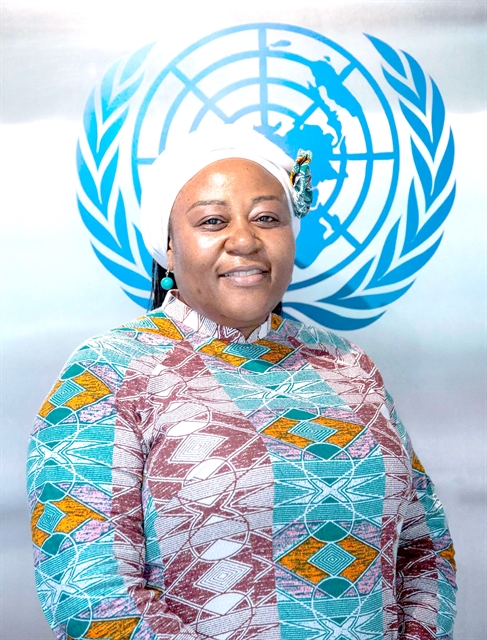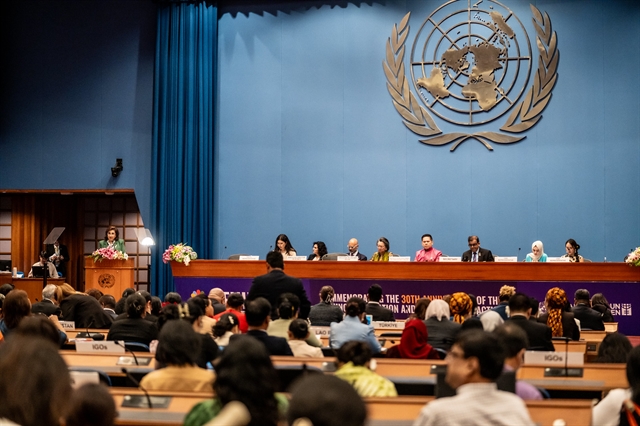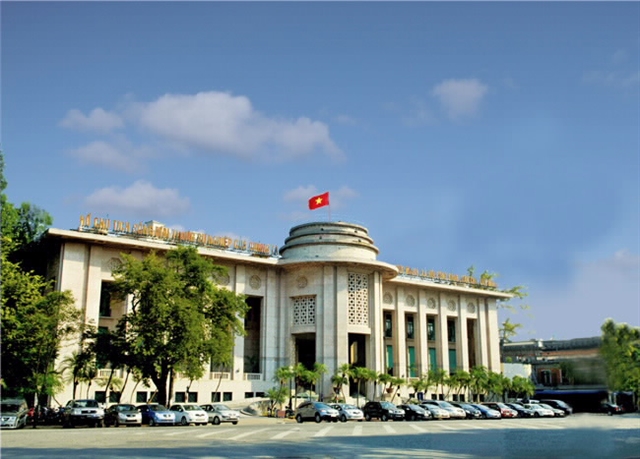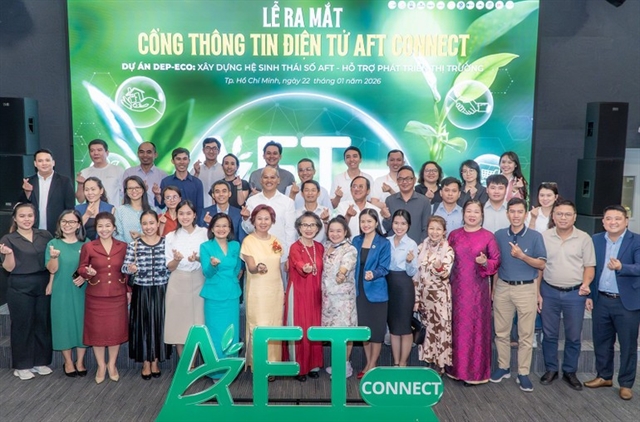 Opinion
Opinion


|
| Caroline Nyamayemombe. — Photo courtesy of the UN Women |
Country Representative of UN Women Việt Nam Caroline Nyamayemombe speaks to Việt Nam News reporter Thu Trang about the implementation of the Beijing Platform for Action.
Over the past 30 years, Việt Nam has made significant achievement in advancing gender equality, as highlighted in the Deputy Minister of Labour, Invalids and Social Affairs’ speech at the Asia-Pacific Ministerial Conference. In your view, what have been the most impressive achievements of Việt Nam and what urgent challenges remain?
I was deeply impressed by the Deputy Minister’s statement and overall, the National Beijing+30 Review Report. What I see as the most significant achievement has been Việt Nam's ability to put in place a strong legal framework. The Gender Equality Law and the subsequent 10-year National Gender Equality Strategies have provided a strong foundation for integrating gender perspectives into legislation across various sectors.
The Gender Equality Law mandates gender impact assessments for every law, ensuring that gender perspectives are effectively integrated into legislation. This approach has enabled Việt Nam to address the Beijing Platform for Action’s 12 critical areas of concern through a systemic, cross-sectoral lens. For instance, as highlighted by the Deputy Minister, the amendments to the Labour Code and Social Insurance Law over the past five years exemplify how a strong legal foundation can drive progress.
Now, in terms of some of the challenges that I think Việt Nam still needs to resolve is the allocation of resources. While policies and laws are commendable, their successful implementation requires sufficient financing and an enhanced workforce capacity. Another critical gap is the availability of data to monitor and evaluate the impact of these laws and policies. Reliable data allows the government to assess outcomes, make necessary adjustments and ensure that equality efforts benefit both women and men. Strengthening data systems and investing in monitoring mechanisms are urgent priorities to sustain and expand the progress made. So, I think those are the areas that Việt Nam needs to urgently attend to.
Deputy Minister of Labour, Invalids and Social Affairs emphasised the importance of cooperation between the Government and organisations, especially the UN, to push up gender equality. How has the UN Women worked with Việt Nam to resolve issues such as gender-based violence, unpaid work and discrimination. What more can be done?
UN Women has been actively collaborating with the Ministry of Labour, Invalids and Social Affairs and other Government agencies, such as the Ministry of Planning and Investment (MPI), Ministry of Natural Resources and Environment and Ministry of Agriculture and Rural Development, to promote gender equality. To strengthen these partnerships, it is essential to establish clear objectives and targets aligned with the Sustainable Development Goals (SDGs).
Việt Nam has demonstrated a strong commitment to achieving the SDGs, particularly SDG 5 on gender equality. The country recognises that achieving these goals requires collaboration across Government agencies, the private sector, along with mass and community-based organisations. Partnerships with concrete and well-defined targets linked to SDG priorities can enhance focus, drive greater commitment and ensure meaningful impact.
For example, UN Women has worked extensively on addressing violence against women. We have seen significant progress when provinces allocate resources to support essential services, such as shelters for survivors of violence and invest in prevention measures, including awareness-raising campaigns. These targeted investments have a tangible impact in reducing incidents of violence.
Recently, UN Women partnered with Vietnam Airlines to explore how its corporate social responsibility efforts could contribute to ending violence against women. This partnership resulted in donations to shelters, one of the critical services needed by survivors of violence. By clearly outlining the roles and contributions of Vietnam Airlines, we strengthened a practical and impactful collaboration model.
Similar approaches can be applied to areas such as climate action, where addressing gender equality requires coordinated efforts from diverse stakeholders. Clearly defining the roles and contributions of each partner is crucial for aligning efforts with SDG targets, ensuring better coordination and holding partners accountable. This clarity enhances collective impact and fosters stronger, more effective partnerships.

|
| An overview of the Asia-Pacific Ministerial Conference on the Beijing+30 Review, which took place in Bangkok, Thailand. — Photo courtesy of the UN Women |
With such challenges of climate change, digital transformation and their gendered impacts, how do you see Việt Nam positioning itself to address the issues while implementing the Beijing Platform for Action?
I believe Việt Nam recognises that gender equality and the empowerment of women are central to the success of both the green and digital transitions. It is also well acknowledged across government documents that women disproportionately bear the impacts of climate change. The country’s policies consistently emphasise gender equality as a core principle. However, as highlighted in the National Beijing+30 review report, it is now essential to translate these commitments into clear, measurable programmes, including targeted initiatives that enable women to actively participate in the digital transition.
Significant gaps remain, particularly in digital skills, cybersecurity awareness and information technology infrastructure. Addressing these challenges will require women-focused and women-friendly approaches, engaging partners with expertise in addressing these specific issues and paying special attention to ethnic minority women and other marginalised groups, recognising that women are not a homogeneous group. Developing targeted programmes to support women in the digital transition, similar to those needed for climate action, is vital.
Currently, we are collaborating with women-owned businesses, the MPI and the Việt Nam Women Entrepreneurs Council to help transform businesses through the adoption of renewable energy. However, a recurring challenge raised by women is the lack of access to financing. Establishing financing mechanisms that enable women to participate and contribute effectively is critical to overcoming this barrier.
At the same time, the green transition is poised to create new jobs and opportunities. To ensure women benefit equally, we must address existing gender gaps in STEM education and employment. This will require targeted investments, prioritisation and robust tracking mechanisms to close these gaps.
By focusing on these targeted interventions, Việt Nam can ensure that women are not left behind in the green and digital transitions. With its demonstrated determination and resilience, I believe the country is well-positioned to achieve sustainable development that is inclusive and equitable for all. — VNS




